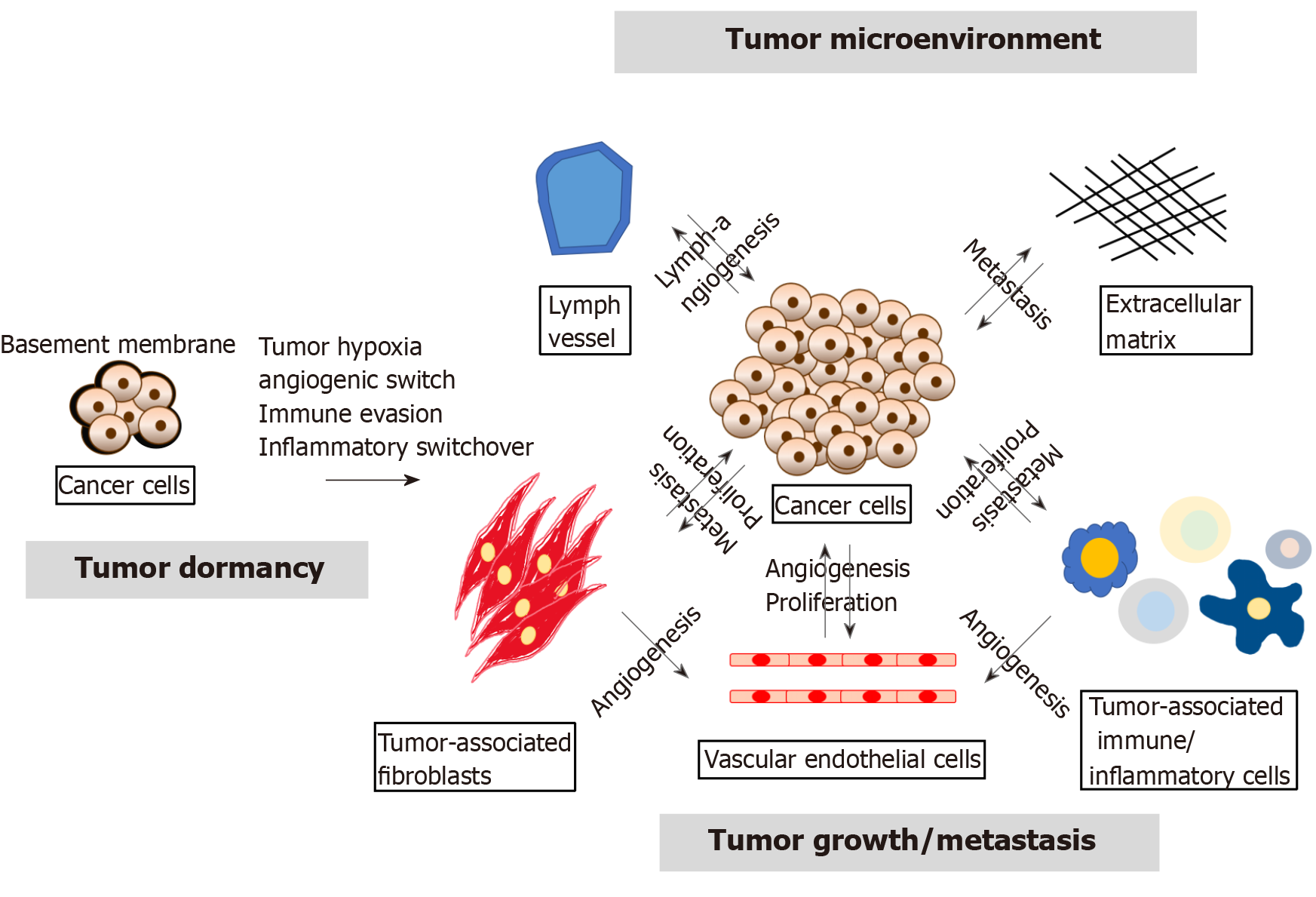Copyright
©The Author(s) 2019.
World J Gastrointest Oncol. Sep 15, 2019; 11(9): 686-704
Published online Sep 15, 2019. doi: 10.4251/wjgo.v11.i9.686
Published online Sep 15, 2019. doi: 10.4251/wjgo.v11.i9.686
Figure 1 The tumor microenvironment regulates tumor growth, relapse and metastasis.
Tumor dormancy can be induced in malignant cancer through several mechanisms, such as epigenetic or genetic changes (cancer stem cells, epithelial-mesenchymal transition, and miRNAs) in the tumor, tumor hypoxia, the angiogenic switch, immune evasion and inflammatory switchover. A change in the tumor microenvironment can facilitate tumor growth/relapse/metastasis and thereby permit the tumor to exit from dormancy through interaction with endothelial cells, tumor-associated fibroblasts, tumor-associated immune/inflammatory cells and the extracellular matrix.
- Citation: Hsieh HL, Tsai MM. Tumor progression-dependent angiogenesis in gastric cancer and its potential application. World J Gastrointest Oncol 2019; 11(9): 686-704
- URL: https://www.wjgnet.com/1948-5204/full/v11/i9/686.htm
- DOI: https://dx.doi.org/10.4251/wjgo.v11.i9.686









